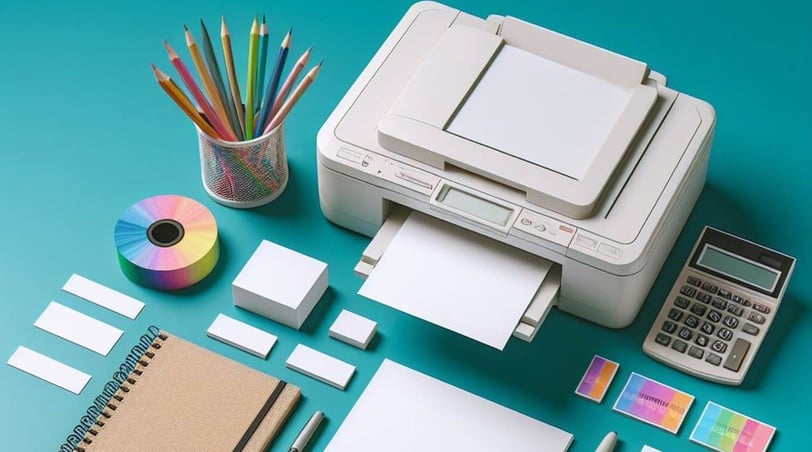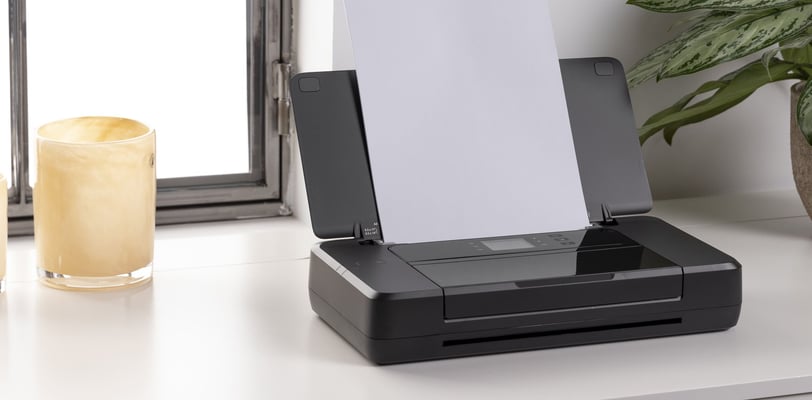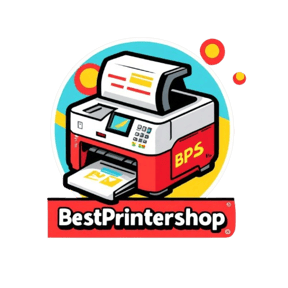Mini Printer : Thermal, Inkjet, and Photo Printers
Discover the convenience of mini printer : portable, versatile, and perfect for on-the-go printing. Learn about types, features, usage, and FAQs in this guide.
Praveen Kumar - Canon Printer Specialist
12/2/20244 min read


Types of Mini Printers
1. Thermal Printers
Thermal printers use heat to transfer ink onto paper. They are widely used for printing receipts, labels, and shipping documents.
Advantages: No need for ink cartridges, fast printing, and low maintenance.
Common Uses: Retail, logistics, and food delivery services.
2. Inkjet Mini Printers
Inkjet mini printers offer high-quality printing with excellent color reproduction. These are ideal for photo printing and small document printing.
Advantages: High-quality prints and versatile usage.
Common Uses: Personal photo printing, creative projects, and occasional document printing.
3. Portable Photo Printers
These printers are specifically designed for instant photo printing, often compatible with smartphones and cameras.
Advantages: Compact size, ease of use, and high-quality photo prints.
Common Uses: Event photography, travel, and personal use.
4. Label Printers
Label printers are specialized for printing adhesive labels, barcodes, and tags.
Advantages: Precision printing and durability.
Common Uses: Product labeling, inventory management, and organization.
Specifications to Consider
When choosing a mini printer, consider the following specifications:
1. Print Resolution
Measured in DPI (dots per inch). Higher DPI ensures sharper and more detailed prints.
Common resolutions: 300 DPI, 600 DPI, and 1200 DPI.
2. Print Speed
Expressed as pages per minute (PPM) for documents or seconds per photo.
Faster speeds are ideal for business use.
3. Connectivity Options
USB, Bluetooth, Wi-Fi, and NFC are standard connectivity options.
Wireless options add convenience for mobile and on-the-go printing.
4. Battery Life
Essential for portable printers. Some models offer rechargeable batteries, while others require external power.
5. Paper Size Compatibility
Common paper sizes: A4, A5, 4x6 inches, 3x5 inches, and custom sizes for labels.
6. Supported Media Types
Plain paper, glossy photo paper, sticker sheets, and label rolls.
7. Weight and Dimensions
Lightweight and compact designs make mini printers easy to carry.
Ideal weight: Under 2 kg.


How to Use a Mini Printer
Step 1: Unbox and Set Up
Unpack the printer and check the contents (printer, cables, manuals, etc.).
Charge the printer if it has a rechargeable battery.
Step 2: Load Paper
Open the paper tray or slot.
Insert the appropriate paper size and type.
Adjust the guides to fit the paper.
Step 3: Install Drivers
Download and install the printer drivers from the manufacturer’s website or using the included CD.
Follow the on-screen instructions for installation.
Step 4: Connect the Printer
Use the desired connectivity method (USB, Wi-Fi, Bluetooth, or NFC).
Ensure the device recognizes the printer.
Step 5: Print
Choose the document or image to print.
Select the printer from the device’s.
Adjust settings (paper size, quality, etc.) and start printing.
How to Connect a Mini Printer
1. Via Bluetooth
Turn on Bluetooth on both the printer and your device.
Pair the devices through the Bluetooth settings menu.
Select the printer from the print menu when ready to print.
2. Via Wi-Fi
Connect the printer to your Wi-Fi network using the printer’s control panel or app.
Connect your device to the same Wi-Fi network.
Add the printer to your device’s printer list.
3. Via USB
Connect the printer with USB cable.
Install the required drivers if prompted.
4. Via NFC
Enable NFC on your smartphone.
Tap your phone against the printer’s NFC tag.
Follow on-screen prompts to connect.


Printer Settings and Adjustments
1. Paper Size and Type
Set the correct paper size (e.g., A4, 4x6 inches).
Choose the media type (plain paper, photo paper, labels).
2. Print Quality
Adjust DPI settings for draft, standard, or high-quality printing.
3. Color Settings
Select color or grayscale printing based on your requirements.
4. Duplex Printing
Enable duplex mode for double-sided printing (if supported).
5. Custom Profiles
Save frequently used settings as profiles for quick access.
Features of Mini Printers
Portability: Lightweight and compact design for easy transportation.
Wireless Connectivity: Bluetooth, Wi-Fi, and NFC for seamless connections.
High-Quality Output: Support for photo and document printing with high DPI.
Versatility: Compatibility with multiple media types, including labels and stickers.
Mobile App Integration: Print directly from smartphones using dedicated apps.
Rechargeable Battery: Extended battery life for on-the-go usage.
Eco-Friendly Options: Energy-efficient models and reduced paper waste.
Common Paper Sizes for Mini Printers
A4: Standard document size.
A5: Smaller document size.
4x6 Inches: Common for photo printing.
3x5 Inches: Compact photo or note size.
Labels: Custom sizes for label printers.
Conclusion
Mini printers offer a convenient and versatile solution for various printing needs, from documents to photos and labels. By understanding their types, specifications, features, and proper usage, you can choose the perfect mini printer to meet your requirements. Their portability and wireless capabilities make them an excellent choice for individuals on the move or those with limited space. Whether you're a business professional needing receipts, a creative enthusiast printing photos, or someone organizing with labels, a mini printer can be a valuable tool. Explore the options available and invest in a mini printer that complements your lifestyle and tasks.
Frequently Asked Questions (FAQs)
1. What is a mini printer used for?
Mini printers are used for portable document printing, photo printing, label creation, and receipt printing. They are ideal for personal, professional, and small business needs.
2. Can mini printers print in color?
Yes, many mini printers, especially inkjet and photo printers, support color printing.
3. Do mini printers need ink?
Thermal printers do not require ink but use special thermal paper.
Inkjet and laser mini printers require ink or toner cartridges.
4. What devices are compatible with mini printers?
Mini printers are compatible with smartphones, tablets, laptops, and desktops. Ensure your device supports the printer’s connectivity options.
5. How do I maintain my mini printer?
Clean the printer regularly to prevent dust buildup.
Use compatible paper and cartridges.
Update the printer’s firmware.
6. Can I print wirelessly from my phone?
Yes, most modern mini printers support wireless printing through Bluetooth, Wi-Fi, or NFC.
10. Can mini printers print on sticker paper?
Yes, many mini printers support sticker paper and other specialty media.
9. Are mini printers suitable for office use?
Mini printers are suitable for light office tasks, but high-volume printing may require a standard printer.
8. How long does a mini printer’s battery last?
Battery life varies by model but typically lasts 2-5 hours of active printing.
7. What is the average cost of a mini printer?
Prices range from ₹3,000 to ₹20,000, depending on features and specifications.
Thanks For Reading :)
Insights
Explore the latest in printer technology and tips.
Resources
Support
contact@bestprintershop.com
+918920029543
© 2024 BestPrinterShop . All rights reserved.
